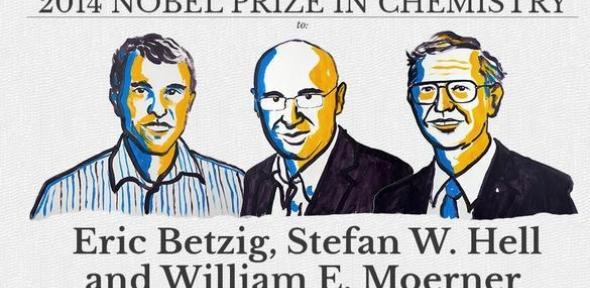
Image courtesy of nobelprize.org
The Nobel Prize in Chemistry 2014 was awarded jointly to Eric Betzig, Stefan W. Hell and William E. Moerner "for the development of super-resolved fluorescence microscopy".
Eric Betzig, Stefan W. Hell and William E. Moerner are awarded the Nobel Prize in Chemistry 2014 for having bypassed a presumed scientific limitation stipulating that an optical microscope can never yield a resolution better than approximately 250 nanometres. This limit is known as the Abbe diffraction limit. This year's Nobel prize is awarded for development of new tools that have broken this diffraction limit, using a technique termed super-resolution imaging. By understanding the fundamental interactions of light with matter, researchers have used these new techniques to visualise fundamental biological processes inside living cells as never before. A general introduction to the work and more details on the scientific background are available from the Nobel Prize website.
